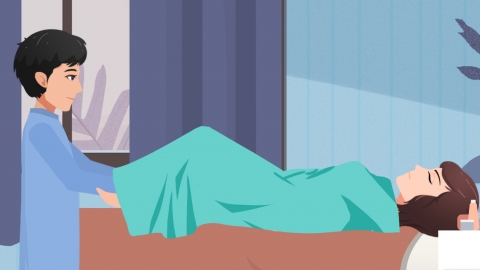What are the symptoms of a uterine diverticulum?
Generally, as a postoperative complication of uterine surgery, symptoms of uterine diverticulum mainly include prolonged menstruation, postmenstrual bleeding, dysmenorrhea, pain during sexual intercourse, and abdominal discomfort. Detailed analysis is as follows:

1. Prolonged menstruation: The duration of menstrual bleeding in patients will be significantly prolonged. A normal menstrual period usually lasts 3–7 days, while for patients with uterine diverticulum, the period may last longer than 7 days, even reaching more than 10 days, with continuous spotting. Later stages often involve small amounts of brown discharge. This is due to menstrual blood accumulating in the diverticulum failing to drain timely, leading to prolonged menstruation.
2. Postmenstrual bleeding: After the menstrual period ends, the residual menstrual blood remaining in the diverticulum gradually drains out, causing minor postmenstrual bleeding, presenting as vaginal spotting or brown discharge, lasting for several days or even more than ten days. This kind of bleeding significantly increases the total duration of bleeding throughout the menstrual cycle.
3. Dysmenorrhea: Some patients may experience dysmenorrhea, with pain typically occurring during menstruation, manifesting as a feeling of pressure or pain in the lower abdomen. This is because menstrual blood drainage from the diverticulum is not smooth, irritating uterine contractions, or due to inflammatory stimulation when combined with inflammation. The severity of pain varies among individuals.
4. Pain during sexual intercourse: During sexual activity, the diverticulum and surrounding tissues may be stimulated, causing pain in the deep lower abdomen or vagina, which can reduce sexual quality. Patients may consequently develop aversion to sexual activity.
5. Abdominal discomfort: Patients often feel a vague discomfort in the lower abdomen, characterized by pressure or mild pain. This discomfort may worsen after fatigue, around the menstrual period, or following sexual activity. Symptoms may ease somewhat after rest but are difficult to completely resolve.
If the above symptoms occur in daily life, they can be alleviated by ensuring adequate rest, avoiding excessive fatigue, maintaining good hygiene habits, and other measures. Regular gynecological examinations to monitor disease progression are also helpful for taking appropriate actions to improve the condition.





